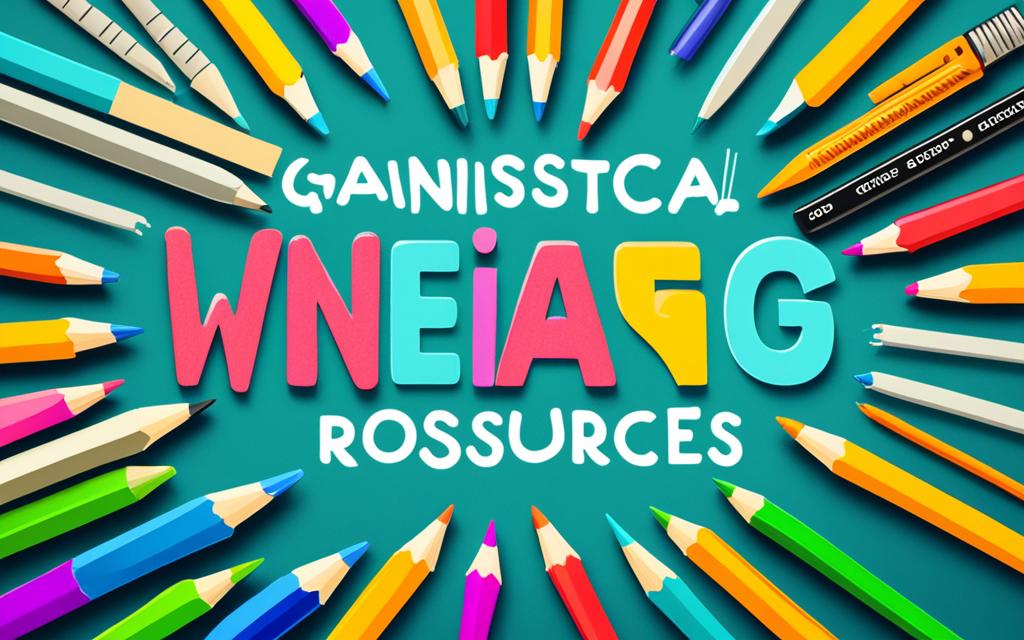
Become An Announcement Pro: Simple Writing Strategies
Writing an effective press release is a crucial skill in corporate communication.
Whether announcing a new product, sharing important company news, or promoting an event, a well-crafted press release can grab attention and effectively convey your message.
We will provide you with simple writing strategies that will help you learn how to write a press release.
We will cover all the essential elements that make a press release stand out, from the importance of clear and thoughtful writing to tips for non-English teachers and techniques for improving sentence structure.
Key Takeaways:
- Develop clear and thoughtful writing skills to convey your message effectively.
- Non-English teachers can still help students improve their writing skills by emphasizing the writing process and providing guidance.
- Using active voice and mastering punctuation can enhance the impact of your writing.
- Varying sentence structure and avoiding repetition can make your writing more engaging and readable.
- Utilize available resources and workshops to improve your writing skills continuously.
The Importance Of Clear, Thoughtful Writing
Clear and thoughtful writing is essential for effectively conveying your message in a press release.
It’s a skill that can be honed and improved over time, and by taking certain actions, you can enhance your writing skills and make a lasting impact.
One way to improve your writing skills is to view the development of students’ writing as a responsibility.
By recognizing the value of good writing and emphasizing its importance, you can help students on their journey towards becoming better writers.
“The ability to write well is a valuable tool that extends far beyond the classroom. It is a skill that students will carry with them throughout their lives, regardless of their chosen career paths.”
When teaching writing, it’s crucial to regularly assign writing exercises and provide guidance throughout the writing process.
By encouraging students to practice and refine their writing skills, they will become more confident and proficient in expressing themselves clearly.
Thoughtful writing goes beyond simply conveying a message; it involves carefully considering the impact of your words and the emotions they may evoke in your audience.
By taking the time to reflect on your writing and considering how others may interpret it, you can ensure that your messages are received with the desired effect.
As you continue to improve your writing skills, remember the importance of clarity and thoughtfulness.
Each word, sentence, and paragraph should be intentional and contribute to the overall message you want to convey.
With practice and dedication, you can master clear and thoughtful writing, leaving a lasting impression on your readers.
Take a moment to appreciate the image above.
It represents the growth and improvement that can be achieved in your writing skills.
Just as the seedling blossoms into a beautiful flower, your writing has the potential to evolve and flourish.
Writing Tips For Non-English Teachers
Even if you’re not an English teacher, you can still play a crucial role in helping students develop their writing skills.
By implementing a few key strategies and emphasizing the learning process, you can assist students in improving their ability to communicate effectively through writing.
First and foremost, remind students that writing is a process, not a one-time task.
Encourage them to see writing as a tool for clarifying their ideas and expressing themselves.
Emphasize the importance of grammar and sentence structure in conveying their thoughts accurately.
Revision is another vital aspect of writing that non-English teachers can emphasize.
Teach students the value of reviewing and revising their work, encouraging them to seek clarity and improve coherence in their writing.
“Writing is a craft, and like any craft, it requires practice and honing of skills. By providing students with regular opportunities to write and guiding them through the revision process, non-English teachers can help students develop their writing abilities.”
In addition to these strategies, providing students with resources can be incredibly helpful.
Compile bibliographies of recommended books, articles, and online sources that guide good writing practices.
Create tip sheets with practical tips and techniques to assist students in improving their writing skills.
Remember, being a non-English teacher doesn’t mean you can’t make a significant impact on students’ writing abilities.
By incorporating these strategies and resources into your teaching approach, you can empower students to become confident and proficient writers.

Active Voice And Punctuation
When it comes to writing, using active voice instead of passive voice can significantly enhance the impact and engagement of your work.
Active voice focuses on the subject acting, making your writing more direct and compelling.
It adds an element of clarity and immediacy, drawing the reader into your message.
For example, consider the following sentence:
“The report was submitted by the team.”
This sentence is written in passive voice, and while it conveys the necessary information, it lacks energy. By rewriting it in active voice, the sentence becomes:
“The team submitted the report.”
Notice how the active voice emphasizes the subject (the team) and the action (submitting the report), making the sentence more concise and engaging.
Punctuation also plays a crucial role in writing.
Correctly using punctuation marks like the semi-colon, colon, and dash can enhance the clarity and flow of your writing.
These punctuation marks serve distinct purposes and can elevate your writing when used effectively.
Consider the following examples:
“I have three goals: travel the world, write a book, and learn a new language.”
The colon is used here to introduce a list of goals, providing structure and organization to the sentence.
“She looked back – and then there was silence.”
The dash in this sentence indicates a sudden change or interruption in thought, adding drama and emphasis to the moment.
By mastering punctuation marks, you can create more polished and sophisticated writing that effectively communicates your ideas.
Remember, using active voice and appropriate punctuation are essential writing tips that can elevate the impact and clarity of your work.
Incorporating these strategies into your writing will help you engage your readers and effectively convey your message.
Sentence Structure And Avoiding Repetition
Varying the sentence structure in your writing is essential for keeping readers engaged and interested.
Repetition can be monotonous and dull. Using different sentence structures can add variety and depth to your writing.
This will captivate your audience and make your content more memorable.
When constructing sentences, remember to balance complexity with clarity.
Overly complex sentence structures can confuse readers and make your writing difficult to follow.
On the other hand, using simple, clear sentences can improve readability.
Here are some writing tips to help you with sentence structure and avoiding repetition:
- Use a mix of short, medium, and long sentences to create rhythm and flow in your writing.
- Try starting sentences with different parts of speech, such as verbs, adjectives, or prepositional phrases.
- Use transitional words and phrases to connect ideas and create smooth sentence transitions.
- Replace repetitive words or phrases with synonyms or pronouns to vary your vocabulary.
- Break up long sentences into shorter ones to prevent them from becoming overwhelming.
- Consider using subordination or coordination to create sentence variety.
Remember, good sentence structure is crucial for effective writing.
Avoiding repetition and finding the right balance between complexity and clarity will make your writing more engaging and enjoyable to read.
Example:
“The art of writing is like a dance. By incorporating various sentence structures and avoiding repetitive patterns, you can lead your readers through a captivating rhythm of words.”
Resources And Workshops For Improving Writing Skills
Enhancing your writing skills is a continuous process that requires dedication and access to valuable resources.
Fortunately, there are various writing resources and workshops available to help you refine your craft.
Whether you’re looking to brush up on grammar, learn advanced writing techniques, or receive feedback on your work, these resources and workshops can be instrumental in your journey to becoming a skilled writer.
Writing Resources
Grammar guides and books on writing techniques are excellent resources for expanding your knowledge and improving your writing skills.
These resources provide valuable insights into grammar rules, sentence structure, effective communication, and more.
Consider exploring popular books such as “On Writing Well” by William Zinsser and “The Elements of Style” by William Strunk Jr. and E.B. White to gain a deeper understanding of writing principles.
Writing Workshops
Joining a writing workshop can provide you with invaluable feedback, guidance, and opportunities to practice your writing skills.
These workshops often feature experienced writers or writing coaches who facilitate discussions, provide constructive criticism, and offer writing exercises to help you hone your craft.
Look for local workshops in your area, or consider online workshops that offer flexibility and the chance to connect with writers worldwide.
Night Classes
If you prefer a structured learning environment, enrolling in a night class focused on writing can be an excellent choice.
These classes are typically offered by community colleges, universities, or adult education centers and cover various writing-related topics.
You will receive guidance from experienced instructors, interact with fellow students, and engage in writing exercises that can significantly improve your skills.
By utilizing these writing resources and participating in workshops or night classes, you can enhance your writing skills, receive valuable feedback, and practice writing in a supportive environment.
Remember, writing is a journey that requires continuous learning and improvement.
Embrace the available resources, remain open to new techniques and ideas, and watch your writing skills flourish.
“Improving your writing skills is a lifelong endeavor. Take advantage of the abundant resources and workshops available and never stop learning and growing as a writer.”

Imitating Writers You Admire
Imitating writers you admire is a powerful strategy for improving your own writing skills.
By closely analyzing the techniques and styles of your favorite writers, you can gain valuable insights into what makes their writing effective and apply those techniques to your own work.
When you imitate writers you admire, don’t aim to copy their work exactly.
Instead, focus on understanding the elements that make their writing stand out.
Pay attention to their use of language, sentence structure, and storytelling techniques.
Note how they capture the reader’s attention, evoke emotions, and convey their message.
By studying and imitating the writing of these successful authors, you can enhance your own skills and develop a unique writing voice.
As you practice imitating different writers, experiment with blending their techniques and styles to create something new and original.
“Imitation is not just the sincerest form of flattery – it’s the sincerest form of learning.” – George Bernard Shaw
Don’t be afraid to imitate multiple writers and explore different genres.
The more you expose yourself to different writing styles, the more versatile and adaptable your own writing will become.
Remember, imitation is a stepping stone towards finding your own voice as a writer.
It is a valuable exercise that allows you to learn from the great while developing your unique approach to storytelling.
So, grab your pen and paper, immerse yourself in the works of your favorite writers, and allow their brilliance to inspire and guide you on your own writing journey.
Using Outlines And Editing Your Work
When it comes to writing, organization is key.
Outlines can be incredibly useful in helping you stay organized and focused throughout the writing process.
Think of an outline as a roadmap for your ideas, guiding you from start to finish.

Creating an outline allows you to structure your thoughts and identify the main points you want to convey.
It provides a clear framework for your writing, making it easier to develop a coherent and logical flow.
By following your outline, you can ensure that your ideas are presented logically, making it easier for your readers to follow along.
Once you have your outline, it’s time to dive into the writing process.
As you develop your content, it’s essential to approach it with a ruthless editing mindset.
Editing is a crucial step in improving the clarity and strength of your writing.
Review your work sentence by sentence, eliminating any extraneous words or repetitions.
This helps to streamline your message, making it concise and impactful.
Pay attention to the flow and coherence of your sentences and paragraphs, ensuring they transition smoothly from one to the next.
Editing also allows you to refine your language, ensuring every word serves a purpose.
Take the time to consider your word choices, opting for clear and precise language that effectively communicates your ideas.
Remember, less is often more.
“Editing is where the magic happens. It’s when you transform your initial draft into a polished piece of writing that resonates with your audience.”
Don’t be afraid to restructure your content to enhance the overall flow and impact.
As you edit and refine your work, remember to keep your target audience in mind.
Consider how your words and ideas will resonate with them and make any necessary adjustments to ensure your message is effectively communicated.
Remember, editing is an ongoing process.
Review your work multiple times, seeking opportunities to improve and refine your writing.
With each round of editing, you’ll gain a fresh perspective and insight into how your writing can be further enhanced.
By utilizing outlines as a roadmap and editing your work ruthlessly, you can elevate the clarity and strength of your writing.
These strategies are essential for aspiring writers to improve their skills and deliver impactful content.
Accepting First Drafts Are Not Perfect
In writing, it’s vital to understand that first drafts are often rough and imperfect.
It’s natural to feel discouraged by the initial outcome of your work, but don’t be too hard on yourself.
Embracing the process of rewriting and editing is key to refining and improving your writing.
When you accept that first drafts are just the starting point, you can approach your work with a growth mindset.
It’s an opportunity to experiment, explore ideas, and let your creativity flow without judgment.
By acknowledging that perfection is not expected from the beginning, you relieve yourself of unnecessary pressure.
Editing is where the magic happens.
It’s the stage where you can mold your raw ideas into a polished piece of writing.
Take the time to review your work critically and make necessary changes.
Focus on clarity, coherence, and the overall impact of your words.
Look for ways to improve sentence structure, tighten your language, and enhance the flow of your ideas.
Remember, writing is a skill that develops over time.
Each draft represents an opportunity to refine your voice, identify weaknesses, and strengthen your writing abilities.
The more you practice, the better you’ll become.
“The first draft is just you telling yourself the story.”
Terry Pratchett
Embrace the challenge of rewriting and editing.
It’s where your work truly takes shape and evolves into something exceptional.
Don’t shy away from constructive criticism. Instead, use feedback as a catalyst for growth and improvement.
Whether you’re a seasoned writer or just starting your journey, it’s crucial to accept the imperfection of first drafts.
With each revision, you’ll gain confidence, refine your skills, and create writing that captures readers’ attention.
Read And Dissect Writing You Admire
Reading widely and analyzing the writing techniques of authors you admire is a valuable strategy for improving your writing skills.
By immersing yourself in well-crafted pieces, you can develop a keen eye for effective writing and enhance your own abilities.
Pay close attention to various aspects of the writing, such as sentence structure, word choice, and material flow.
Observe how these elements contribute to the piece’s overall impact, capturing the reader’s attention and conveying the message effortlessly.
Take note of what makes certain pieces engaging and compelling.
Look for clever uses of language, captivating storytelling techniques, or effective strategies for conveying complex ideas.
By carefully studying and dissecting the writing you admire, you can gain valuable insights and inspiration to incorporate into your own work.
Remember, the goal is not to imitate or replicate someone else’s writing style but rather to learn from their strengths and apply those lessons to your own unique voice.
By honing your analytical skills through reading and dissecting exceptional writing, you can enrich your own repertoire of writing techniques.
Continuously seek out new authors, genres, and writing styles to expand your perspective and deepen your understanding of what constitutes powerful and effective writing.

Remember, the journey to becoming a better writer is a continuous process of learning and refinement.
Incorporate the strategies and tips discussed, including reading and analyzing writing you admire, to improve your skills and create impactful written content continually.
Writing Partners And Feedback
Collaborating with a writing partner can be a powerful tool for improving your writing skills.
Having a partner to review your work and provide feedback can offer a fresh perspective and valuable insights.
By sharing your writing with others, you open yourself up to constructive criticism that can help you identify areas for improvement.
A writing partner can point out weaknesses in your writing style, grammar, or organization, allowing you to develop stronger and more polished work.
When working with a writing partner, it’s essential to establish clear guidelines and expectations.
Define the scope and purpose of your project and communicate your specific goals.
This will ensure that your partner’s feedback aligns with your needs and helps you move forward.
During the feedback process, be open-minded and willing to accept constructive criticism.
Remember that the purpose of feedback is to help you grow and improve as a writer.
Don’t take criticism personally, but view it as an opportunity to develop your skills.
Additionally, consider providing feedback to your writing partner as well.
By engaging in a reciprocal feedback exchange, you can both benefit from each other’s insights and perspectives.
“A writing partner can offer the fresh eyes you need to uncover hidden strengths and weaknesses in your work.”
Incorporating feedback from a writing partner can significantly enhance your writing skills.
It allows you to see your work from a different perspective and provides valuable suggestions and strategies for improvement.
Remember, great writers are not made in isolation; they thrive in collaboration and welcome feedback as an opportunity for growth.
Improving writing skills is an ongoing process that requires practice and dedication.
This has provided strategies and tips for becoming a more effective writer and mastering writing a press release.
Implementing these techniques, such as using clear and thoughtful writing, understanding sentence structure, and avoiding repetition, can enhance the impact and readability of your writing.
Remember, writing is a skill that evolves.
The more you write and learn from the writing of others, the better you will become.
Furthermore, take advantage of available resources such as grammar guides, books on writing techniques, and writing workshops.
Collaborating with writing partners and seeking feedback can also provide valuable insights and help you identify areas for improvement.
So, keep writing, keep practicing, and watch your writing skills become more refined and powerful.
With persistence and a commitment to improving, you can effectively convey your message in a press release and convey your brand’s vision with confidence.
